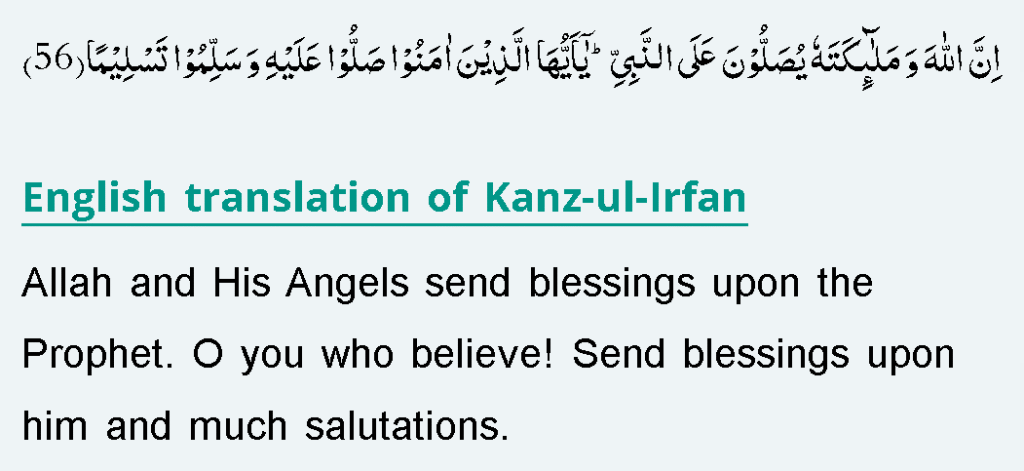For every Muslim, the recitation of Darood Sharif, or sending blessings upon Prophet Muhammad ﷺ, transcends a mere spiritual exercise. It is a profound act of devotion, a sign of unwavering love, and a vital component of a believer’s daily life that carries immense significance in both this world and the Hereafter. It serves as a spiritual lifeline, connecting the individual directly to the mercy of Allah and the noble legacy of His final Messenger.
This article explores the multi-faceted importance of Darood Sharif in a Muslim’s life. We will delve into why this practice is not just recommended but is crucial for spiritual growth, the purification of the heart, the acceptance of prayers, and overall well-being. Understanding its deep impact encourages us to integrate this blessed invocation more profoundly into our daily routines.
Fulfilling a Divine Command and Prophetic Sunnah
The foremost reason for the importance of Darood Sharif lies in its divine injunction. Allah Almighty Himself commands believers in the Holy Quran:
“Indeed, Allah confers blessing upon the Prophet, and His angels [ask Him to do so]. O you who have believed, ask [Allah to confer] blessing upon him and greet him with [a worthy] greeting.” (Surah Al-Ahzab, 33:56)
This verse clearly establishes the obligation and immense virtue of sending blessings. Furthermore, Prophet Muhammad ﷺ himself consistently recited and encouraged his companions to recite Darood Sharif, making it an integral part of the Sunnah. By engaging in this practice, a Muslim directly obeys Allah’s command and follows the beloved practice of His Messenger, which is a cornerstone of faith.
Strengthening Connection with Prophet Muhammad ﷺ
Reciting Darood Sharif is a powerful expression of love, respect, and reverence for Prophet Muhammad ﷺ. It deepens the spiritual bond between a Muslim and the Prophet ﷺ, who is a mercy to mankind and the perfect role model.
This constant remembrance of the Prophet ﷺ fosters a stronger connection to his teachings, his character, and his message. It inspires believers to emulate his noble qualities and strive to live according to the Sunnah, thereby strengthening their overall faith and practice of Islam.
Means of Seeking Forgiveness and Spiritual Purification
One of the most profound benefits that underscores the importance of Darood Sharif is its role in spiritual cleansing and elevation. The Prophet ﷺ said: “Whoever sends blessings upon me once, Allah sends blessings upon him ten times, and removes ten sins from him, and raises him ten degrees in rank.” (Sunan An-Nasa’i)
This Hadith clearly illustrates how consistent recitation leads to the forgiveness of minor sins and a spiritual upliftment. It purifies the heart from ailments like arrogance and envy, bringing spiritual light (Noor) and tranquility into a Muslim’s life, fostering a state of inner peace and contentment.
Opening Doors to Accepted Duas (Supplications)
For a Muslim, Duas are a direct conversation with Allah, a means of seeking help and expressing gratitude. The importance of Darood Sharif in this context is immense. It is a well-established practice that Duas are more likely to be accepted if they begin and end with Darood Sharif.
The Prophet ﷺ taught that a supplication is suspended between the heavens and the earth, and nothing from it ascends until blessings are sent upon him. Thus, Darood Sharif acts as a key, unlocking the doors of acceptance for a believer’s prayers.
Attracting Barakah (Blessings) and Ease in Life
The benefits of Darood Sharif are not limited to the spiritual realm; they extend to a Muslim’s worldly life as well. Many experiences and Islamic teachings attest to its power in attracting Barakah (blessings) and ease in various affairs.
- It can lead to an increase in lawful sustenance (Rizq) and overall prosperity.
- It provides solace and relief from worries, anxieties, and difficulties, acting as a spiritual shield against life’s challenges.
- Consistent recitation brings a profound sense of inner peace and tranquility, enabling a Muslim to navigate worldly affairs with calmness and resilience.
Preparation for the Hereafter
Ultimately, the importance of Darood Sharif culminates in its profound impact on a Muslim’s preparation for the Hereafter:
- The Prophet ﷺ stated that those who send the most blessings upon him will be closest to him on the Day of Judgment. This proximity is a tremendous honor and a source of immense hope.
- It is a means of securing the Prophet’s intercession (Shafa’at) on the Day of Reckoning.
- Each recitation adds to a Muslim’s ledger of good deeds (Hasanat), contributing to a favorable outcome in the afterlife.
A Continuous Act of Love and Submission
In conclusion, the importance of Darood Sharif in a Muslim’s life cannot be overstated. It is a comprehensive act of devotion that fulfills a divine command, strengthens our bond with Prophet Muhammad ﷺ, purifies our souls, ensures the acceptance of our Duas, brings worldly blessings, and prepares us for the Hereafter.
By making Darood Sharif a consistent and heartfelt practice, Muslims not only gain immense rewards but also cultivate a deeper spiritual connection, leading to a life filled with peace, purpose, and divine grace. Let us strive to make the recitation of Darood Sharif a cherished part of our daily lives, a continuous act of love and submission to Allah and His Beloved Messenger ﷺ.


